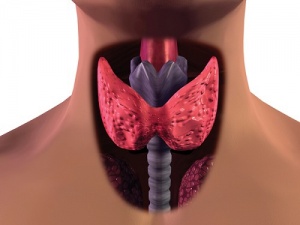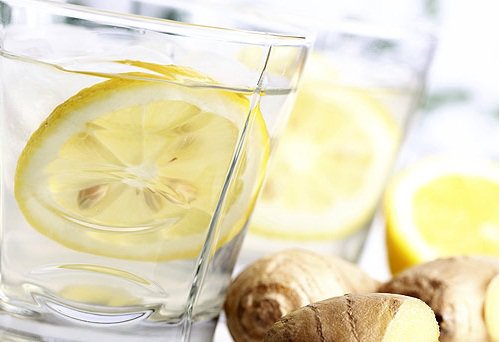3 Easy Ways to Cope with Hypothyroidism

Hypothyroidism is a complex disease that requires some effort to address and cope with. Weight changes and fatigue are some examples of common symptoms. Besides medical treatment, there are other strategies that can help you. Find out about three easy ways to cope with hypothyroidism in this article.
Living with hypothyroidism

Each year many people are diagnosed with hypothyroidism. It’s a disease caused by a disorder of the thyroid gland – a sudden change where the body stops producing the right amount of thyroid hormone. There’s a deficit of this hormone, which leads to certain effects.
There may be hair loss, weight gain, or fatigue. You may experience sleep disturbances or just small changes to the skin. It may become drier, for instance. Some will notice mood changes, such as increased sadness and apathy. These compound with feelings of your body being bloated. These are all symptoms that fall within the pathology of hypothyroidism. Your doctor can diagnose it with a complete blood test analysis.
Also Read: How to Take Care of Your Thyroid
The most common drug that is usually given in these cases is levothyroxine. Some people do recover with this drug, but others must learn to cope with the hypothyroidism. This alteration of the thyroid gland may be treated daily by supplementing your your medication with a healthy lifestyle and diet. Therefore, we encourage you to follow these tips.
5 tips to treat your hypothyroidism
Good nutrition

- Foods with omega-3 fatty acids are also very beneficial. Tuna, mackerel, oily fish, flaxseed oil, and walnuts will help a lot. Do not neglect these.
- Appropriate fruits: There are fruits that can help your thyroid balance itself. Lemon juice, for example helps the body distribute the thyroxine better. Orange juice provides the same benefits. Avocados are also great for this purpose. They will provide a significant dose of Vitamin B. Finally, consider drinking some grapefruit juice in the morning.
See Also: 10 Reasons to Eat More Avocados
Herbal remedies for hypothyroidism

- Ginger: Do you like ginger? Excellent, because it will help you a lot. Thanks to ginger, you can improve our circulation and thus activate your thyroid. It is a very stimulating plant and appropriate for this type of disease.
- Hypericum (St. John’s wort): Do you know this plant? This plant is used to deal with the side effects of hypothyroidism. It helps fight fatigue, gives you strength, and stands as an ideal remedy to start your day off well. Consult your doctor if you take any other medication since it does interact with some drugs.
- Cayenne tea: It may surprise you, but cayenne activates your metabolism and activates blood circulation, relieving the sensation of cold so common in these cases. It’s enough to add just a little of the powder to a cup of boiling water. All it takes is a little. Let it dissolve completely and drink it slowly.
Cope with hypothyroidism with psychological strategies

Do not lose hope. Ideally, you should understand that this is an endurance test. You must pass ongoing checkups with your doctor, perhaps even undergo surgery, but everything will be worth it. You can often overcome the disorder through encouragement, perseverance, and hope.
Know that you are going to have to change your eating habits. It will probably be necessary to eliminate many things that you like from your diet, such as sweets, refined flours, fast food, etc. You must increase your intake of vegetables, drink more fluids, and exercise more. Swimming, for example, is a great exercise, as well as walking for a half an hour each day, or even dancing and aerobics. Get up every day determined to improve and you’ll feel better.
Some days you’ll feel more tired, but look in the mirror and tell yourself that you have the power to cope with hypothyroidism. You will be able to regain your ideal weight, you’ll feel better, and all your efforts will be worth it. You deserve it.
All cited sources were thoroughly reviewed by our team to ensure their quality, reliability, currency, and validity. The bibliography of this article was considered reliable and of academic or scientific accuracy.
Gilbert, J. (2017). Hypothyroidism. Medicine (United Kingdom). https://doi.org/10.1016/j.mpmed.2017.05.009
Begg, T. B., & Hall, R. (1963). IODINE-INDUCED HYPOTHYROIDISM. The Lancet. https://doi.org/10.1016/S0140-6736(63)91967-6
E., A. A., A., G., & M., S. (2014). The effect of omega-3 on cognition in hypothyroid adult male rats. Acta Physiologica Hungarica.
Franceschi, S., Levi, F., Negri, E., Fassina, A., & La Vecchia, C. (1991). Diet and thyroid cancer: A pooled analysis of four european case‐control studies. International Journal of Cancer. https://doi.org/10.1002/ijc.2910480315
Parmar, H. S., & Kar, A. (2007). Protective role of Citrus sinensis, Musa paradisiaca, and Punica granatum peels against diet-induced atherosclerosis and thyroid dysfunctions in rats. Nutrition Research. https://doi.org/10.1016/j.nutres.2007.09.003
Hamouda, A. F., Sameeh, M. Y., & Shrourou, R. M. (2016). Effect of Avocado (Persea Americana), Cabbage (Brassica Oleracea) and Ginger (Zingiber Officinale) on Rat Liver and Thyroid Injuries Induced by CCl4 (Carbon Tetrachloride). Journal of Pharmacy and Pharmacology. https://doi.org/10.17265/2328-2150/2016.03.002
Stevinson, C., Dixon, M., & Ernst, E. (1998). Hypericum for fatigue – A pilot study. Phytomedicine. https://doi.org/10.1016/S0944-7113(98)80040-8
Obert, E. (2013). Herbal management of postpartum hemorrhage. Midwifery Today with International Midwife. https://doi.org/10.1111/j.1744-4667.2012.00144.x
Šarabon, N., Löfler, S., Cvecka, J., Hübl, W., & Zampieri, S. (2018). Acute effect of different concentrations of cayenne pepper cataplasm on sensory-motor functions and serum levels of inflammation-related biomarkers in healthy subjects. European Journal of Translational Myology. https://doi.org/10.4081/ejtm.2018.7333
This text is provided for informational purposes only and does not replace consultation with a professional. If in doubt, consult your specialist.








